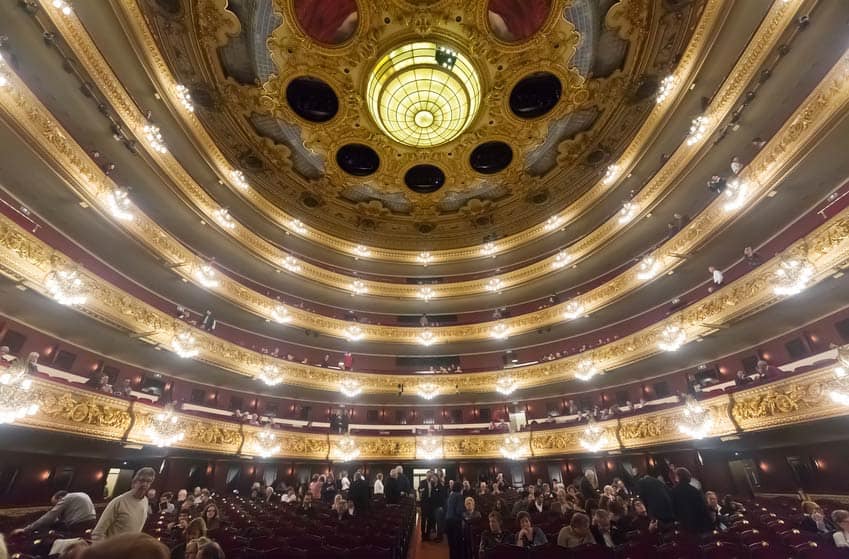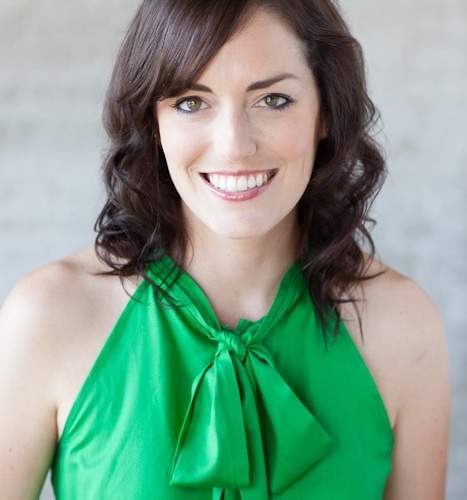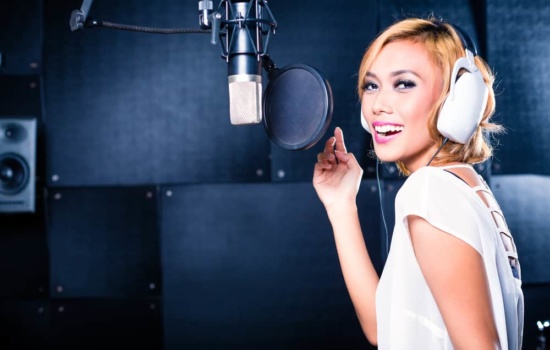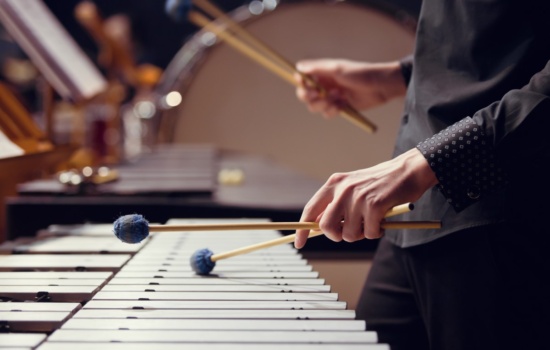Music Career Finder
Survey Start
Opera Singer

How To Become an Opera Singer
- An opera singer sings and acts on stage in full costume
- When an Opera Singer has work, their schedule is packed, often working 10-15 hour days
- The opera season is from September to May, so this is when Opera Singers are most busy
- Travelling is an integral part of this career
- You will need to be professionally trained, so music school is required
- The average salary of an Opera Singer is $70,000 per year and can range from $60,000 to $200,000 per year
- Career Description
- Salary
- Career Outlook
- Career Path
- Experience & Skills
- Education & Training
- Additional Resources
- Sources
- References
Career Description
An opera singer sings and acts on stage in full costume, often singing in Italian, French, or German.
Opera singers perform pieces that combine a libretto (text) and a musical score accompanied by an orchestra. These performances incorporate costumes, scenery, stage acting, and sometimes dancing.
What Does an Opera Singer Do?
Opera singers do more than just sing opera. Here are the main things they may do:
- Sing
- Act and memorize lines
- Know foreign languages (most commonly Italian, French, and German)
- Move around the stage with agility
- Dance
- Read music
A Day In the Life of an Opera Singer
The opera season lasts from September through May and is a varied and intense period for opera singers.
If cast in a production, a singer’s typical day will be busy rehearsing, doing vocal warmups, memorizing lines, and practicing their vocal parts.
During their downtime, they’re studying for their next gig, learning new music, and reading scripts.
Mezzo-soprano Bergen Baker said when she’s not part of a performance, she tries to keep a regular schedule, which involves:
- Working out
- Checking emails
- Scheduling rehearsals
- Going to her voice lesson
- Singing practice with her pianist
When opera singers are booked for a performance, their schedule is packed.
On the first day, the whole cast (minus the chorus) joins the Maestro for a sing-through. Everyone will already know the whole piece.
Then the company works on staging the opera, a 2-3 week process that sees them working generally from 10 a.m. to 10 p.m.
On the fourth week, they move into the theatre for tech week, which is when they move around on the stage for the first time in costume, using props, and experimenting with lighting.
Opera singers will get one musical rehearsal with the orchestra where they sing the whole opera through.
Then they get two dress rehearsals, and then the production opens for 2-3 weeks of performances.
Salary
On average, opera singers earn $70,000 per year. The salary range for opera singers runs from $60,000 to $200,000.
For a part-time singer, salary can be as low as $15,000 a year, but a high-earning performer will make around $250,000.
Then there are stars like Renee Fleming, who earn millions.
How Do Opera Singers Make Money?
Opera singers are typically paid per project, although those participating in Young Artists Programs or as artists-in-residency are paid weekly.
Young Artists Programs are the bridge between academic and professional management. During these programs, Singers (generally between the ages of 22-32) are in residence at a company and get paid a weekly salary to sing smaller roles or work as understudies.
When you get hired by an opera company, they will send you a “contract and fee which you either accept or negotiate,” Baker said.
“It’s a lump sum fee, no taxes taken out, so you have to be good with money,” she said.
Singers get “half the fee after the first performance, then the other half after the final performance.”
Hey, what do you think about trying our new Music Career HelperMusic Career Helper really quick? It’s totally free and could help get your career moving fast! Give it a try. It’s totally free and you have nothing to lose.
Career Outlook
The opera season lasts from September through May, with Singers doing as many back-to-back gigs as possible.
When attached to a performance, opera singers usually rehearse from morning till about 10 or 11 p.m.
And then performance nights don’t wrap till anywhere between 11 p.m. and 1 a.m., and if there’s a matinee, they return to the theatre at 10 a.m. the next day for makeup.
Mid-October to mid-December is audition season, in which companies cast their next year’s programs.
Singers like Baker will spend 2-3 weeks in New York or another major city, singing for as many companies as possible.
Since the schedule is so intense, they generally take summer as a “recovery period,” Baker says.
Opera singers come from all over the nation and all over the world, so travel and being away from home are a big part of the lifestyle.
Career Path
Advancement as an opera singer really “depends on what kind of artist you want to be,” Baker said.
But in general, an opera singer can advance their career by working for more prestigious companies, becoming well-known, and/or earning more money.
Here are some of the most common roles you could pursue as an aspiring opera singer…
Leading Opera Singer
This is the most recognized role, where you perform as a leading character in opera productions, whether for major opera houses or touring companies.
Depending on your vocal range, you could be cast as a soprano, mezzo-soprano, tenor, baritone, or bass, with distinct roles within each voice type.
Beyond traditional opera roles, many opera singers perform as soloists with orchestras in concerts that feature operatic selections, art songs, or oratorios.
Ensemble or Chorus Singer
Many opera houses have a chorus that performs in productions throughout each season.
Being a part of an ensemble offers steady work and provides opportunities to develop experience and contacts within the industry.
Understudy or Cover Singer
These singers are prepared to step in for lead roles if the principal singer is unable to perform.
It’s an essential role that can also lead to major performance opportunities if called upon.
Recording Artist
Some opera singers create recordings for classical labels or digital streaming platforms.
These can include traditional opera arias, cross-genre collaborations, or even film soundtracks.
Opera Coach or Vocal Instructor
Experienced singers often share their expertise by coaching younger singers in technique, interpretation, and performance or by teaching private lessons.
Experience & Skills
If you want to succeed as an opera singer, here are the skills you’ll need to develop…
Learn Foreign Languages
Baker said you should study Italian, French, and German and become “functional” in them. These are the most common languages you’ll see in operas.
Since the female voice doesn’t fully mature till a Singer’s early to mid-thirties, “language is something you can do at any age.”
Get as Much Experience as You Can
Baker suggests aspiring opera singers “do as many performances as you can at school, community theatre, in opera company choruses.”
When you are cast in a production, learn from the best.
“Every moment I wasn’t on stage or in the makeup chair, I was in the wings watching seasoned pros. It’s like a free lesson,” she said of her early performances.
Audition
To land that first opera singing gig, do as many auditions as possible.
Baker said that “when you sing for somebody, just because they don’t hire you” doesn’t mean they won’t eventually hire you.
“Many times a company will want to hear you sing a few times. Take heart if you don’t get hired right away.”
Network
Meeting fellow opera singers, theater actors, writers, and directors will serve you well. You never know when someone will remember how kind and hardworking you are and want to hire you.
“Rule number one is always do your homework. Know your music and your language. Rule number two is always be a good colleague. Your talent got you hired in the first place. Being a good colleague will get you back.”
Get a Manager
Getting a Manager can expand your career opportunities, but when you’re starting out, you’ll have to be your own Manager for a period of time, according to Baker.
Intern
Baker got her start thanks in part to an internship with the Minnesota Opera.
She stayed in touch after graduation, sending a “quarterly email, about this is what I’m doing” and when a position as a Teaching Artist opened up, they remembered her.
“It’s more than just how beautifully you sing. It’s about how you present yourself and how you communicate. It’s really committing yourself to the art form.”
Be Driven and a Self-Starter
A successful opera singer is “someone who is driven, self-motivated, who works really well with other people and who loves to learn.”
Take Care of Your Body
It’s important to be or become someone who takes care of your body, “making sure you get exercise on the road and eating healthy because no one wants a sick Singer.”
Education & Training
Ready to educate yourself to become an opera singer? Here’s how…
Take Voice Lessons
“Find a Voice Teacher that you trust and an academic program that’s a good fit for you,” Baker said.
If Baker, an experienced opera singer, still takes voice lessons, you should take them as an aspiring opera singer. Lessons will help you improve faster and help you take better care of your voice.
Opera singers start training at a very young age. Baker started studying opera in high school, which she says is considered a late start. She sang in glee clubs and took private voice lessons.
Opera Singer Degree
If you attend music school, you should earn a bachelor’s in Music Performance or Voice.
Then you can go on to get a music-related master’s degree.
As an undergrad, Baker majored in vocal performance, later earning an MA in music.
You may also want to minor (or at least take some classes) in one of the foreign languages often used in opera: Italian, German, and French.
In addition to musical training, Baker encourages aspiring opera singers to “take a dance class, an improv class or a theatre class.”
By earning your music degree, it’s possible for it to lead directly to your first gigs.
“See if your college, university or conservatory has a link or a partnership with a local opera company or theatre company where you can take advantage of student discounted tickets or coaching from that company because that really starts the networking train moving,” Baker said.
Travel Abroad
Between college and graduate school, Baker studied and sang in Italy.
She said European study is important because “it allows you to grow in a different way than if you had stayed stateside your whole life” because not only is it the place where opera was born, but it also “gives you a different perspective on what the art form is really about.”
Additional Resources
The American Guild of Musical Artists sets rates of acceptable pay and hours. “The biggest opera singers are members if they’re American,” Baker says. Membership is not a requirement for the career, however, as operas can hire union and non-union performers.
Sources

Bergen Baker
Bergen Baker has been a featured performer with the Minnesota Opera, the Minnesota Orchestra, Skylark Opera and Florentine Opera. Ms. Baker’s concert and oratorio experience includes performances of Handel’s Messiah, Mozart’s Mass in C minor, Vivaldi’s Gloria, Mendelssohn’s Elijah, and Igor Stravinsky’s Les Noces, as well as many programs of art song.
In addition to performance on the operatic and concert stage, Ms. Baker served as Teaching Artist for the Minnesota Opera from 2012-2014. Ms. Baker currently directs opera and music theater programs for students through the University of Minnesota and Musica nelle Marche in Urbino, Italy. Baker offers voice lessons through the Twin Cities Music Teachers Collective.
Baker has been featured and mentioned in the Star Tribune, Twincities.com, Broadway World, Minnesota Playlist, MinnPost, The Stages of MN, WJON, Opera Wire, and Twin Cities Arts Reader.
She is listed in Opera Base as an artist and has performed with the Manitowoc Symphony, the Source Song Festival (review via the Star Tribune), and the Kenwood Symphony.
To see her in action, check out this clip of Baker singing The Magic Flute with the MN Opera. Baker featured in one of Star Tribune’s 10 Best Classical Concerts of 2018.
References
- 1Nill Zuckerman. "Opera – Career & Salary Overview". musicschoolcentral. published: Sep 29, 2014. retrieved on: Dec 18, 2019





